Development of Religious Views and Decision-Making in Psychology
VerifiedAdded on 2022/11/14
|6
|746
|184
Project
AI Summary
This project examines the development of religious views and their impact on the decision-making process. The assignment explores how implicit knowledge, counterintuitive ideas, and perception contribute to the formation of religious beliefs that guide problem-solving and choices. The project analyzes the influence of religious background, family environment, and ethical values on decision-making, including workplace scenarios. The paper provides examples of how religious teachings, such as those found in the Bible, Geeta, and Quran, shape individuals' choices. It also acknowledges the limitations and potential conflicts that can arise from religious differences in the workplace, citing relevant research and examples to support its arguments, and concludes by emphasizing the multifaceted nature of decision-making and the importance of considering various factors beyond religious views. The assignment adheres to APA formatting guidelines and provides references to support the analysis.
1 out of 6
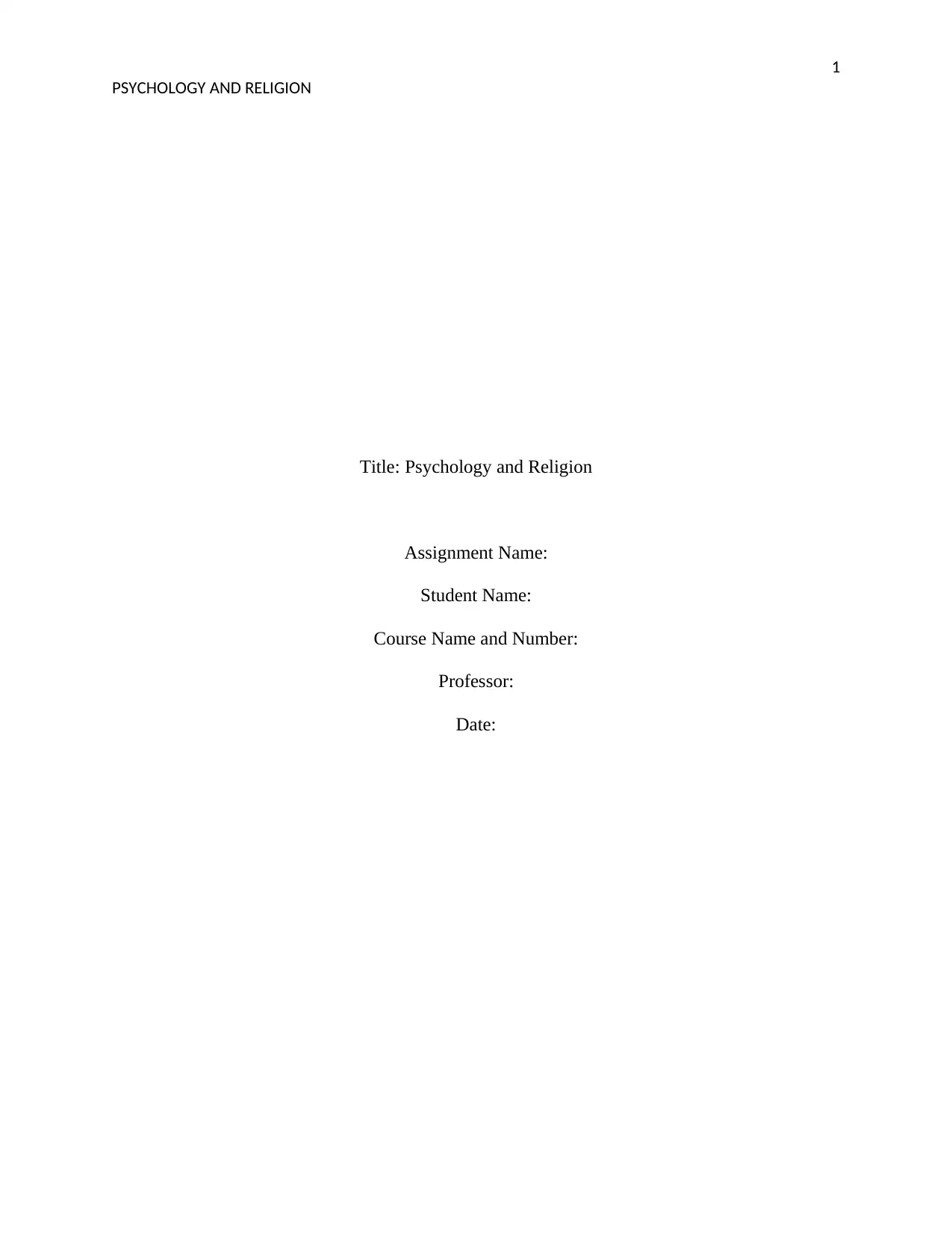
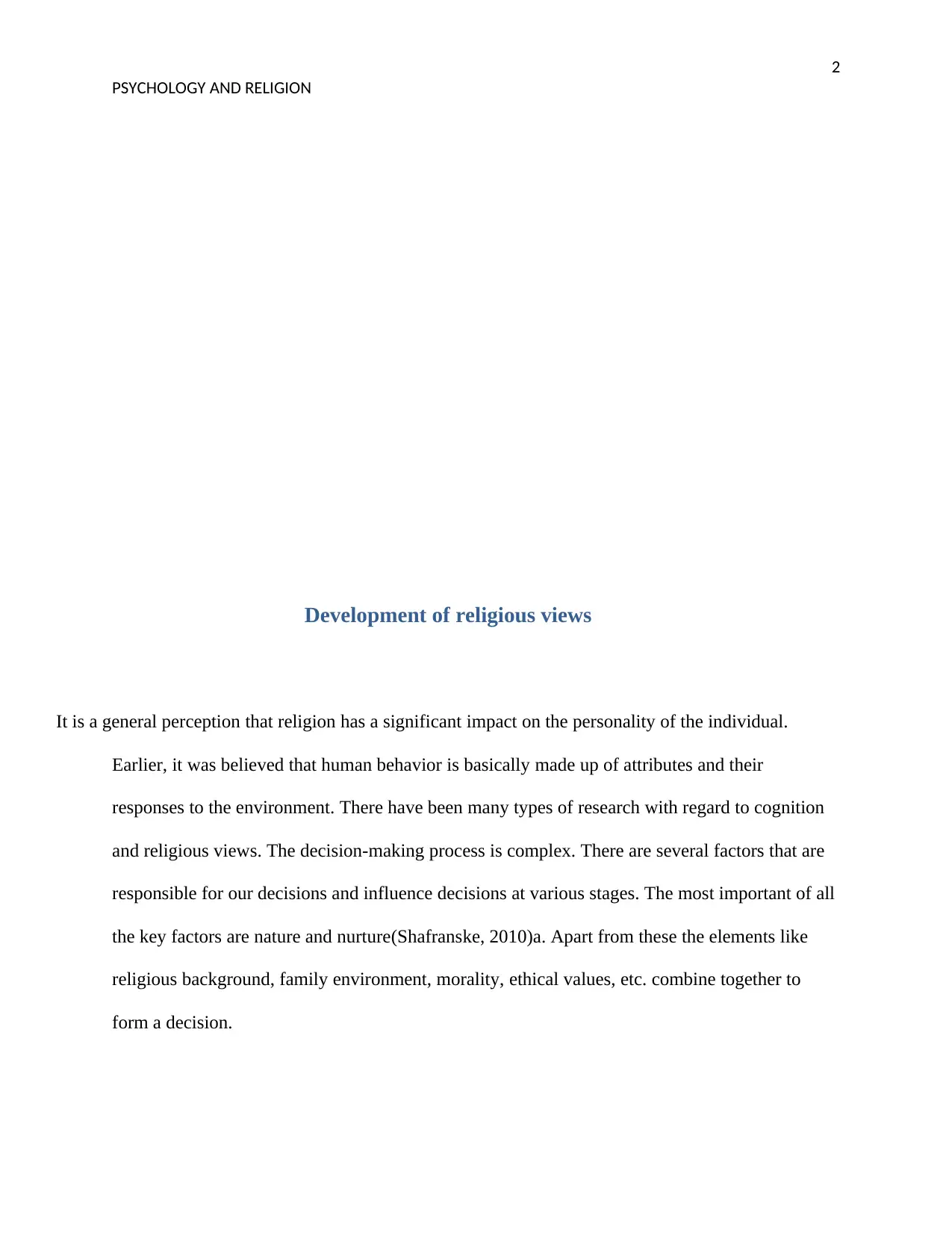
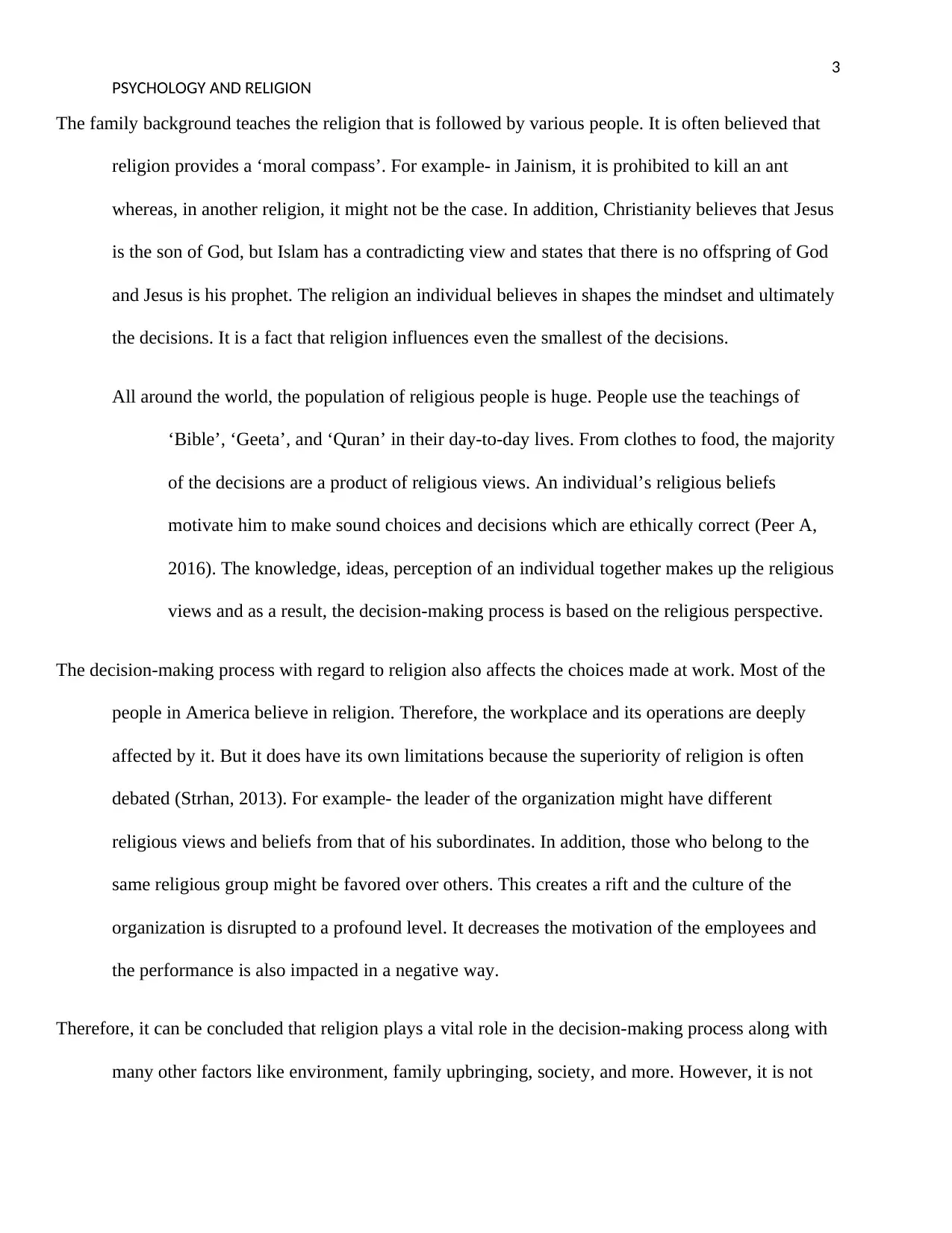

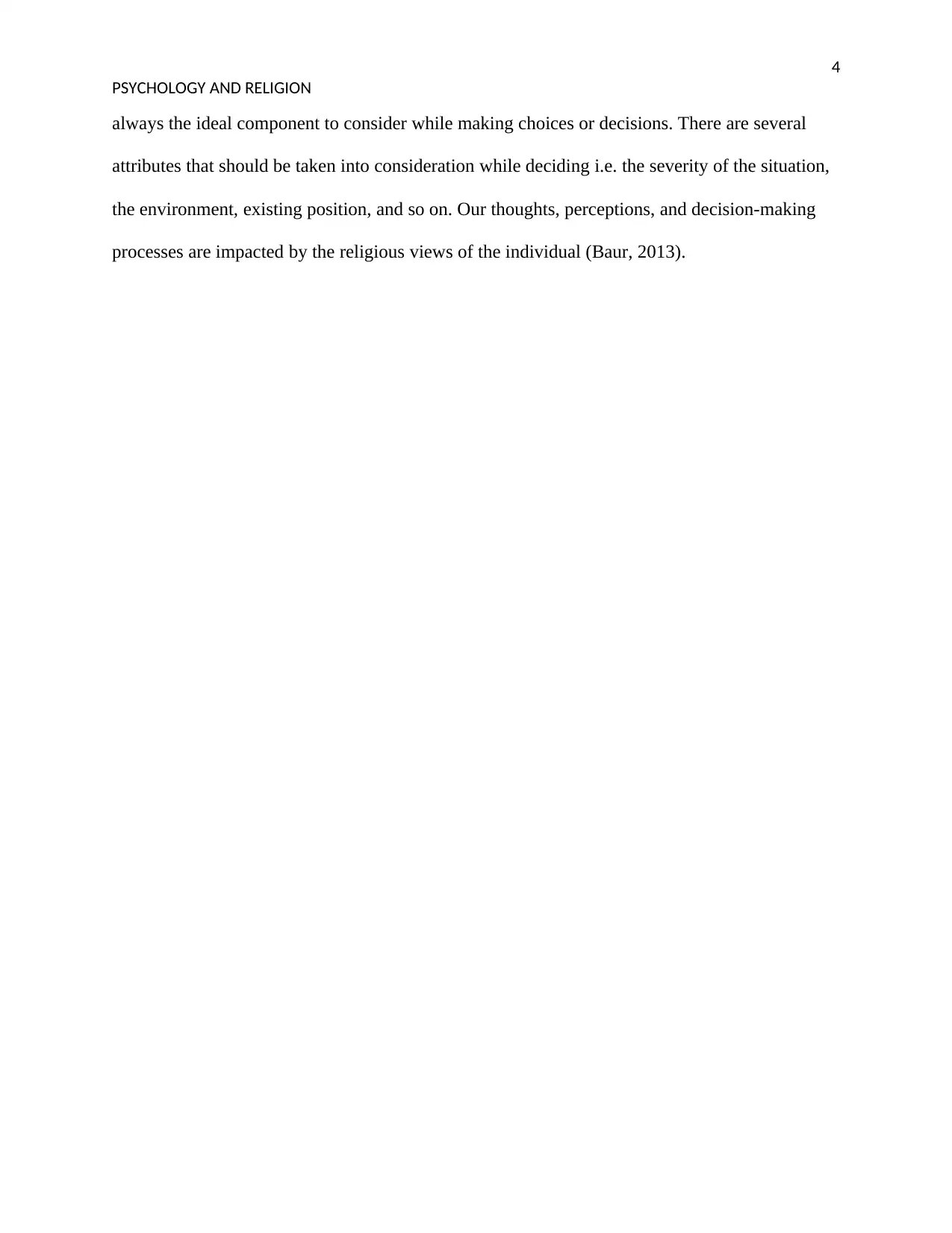

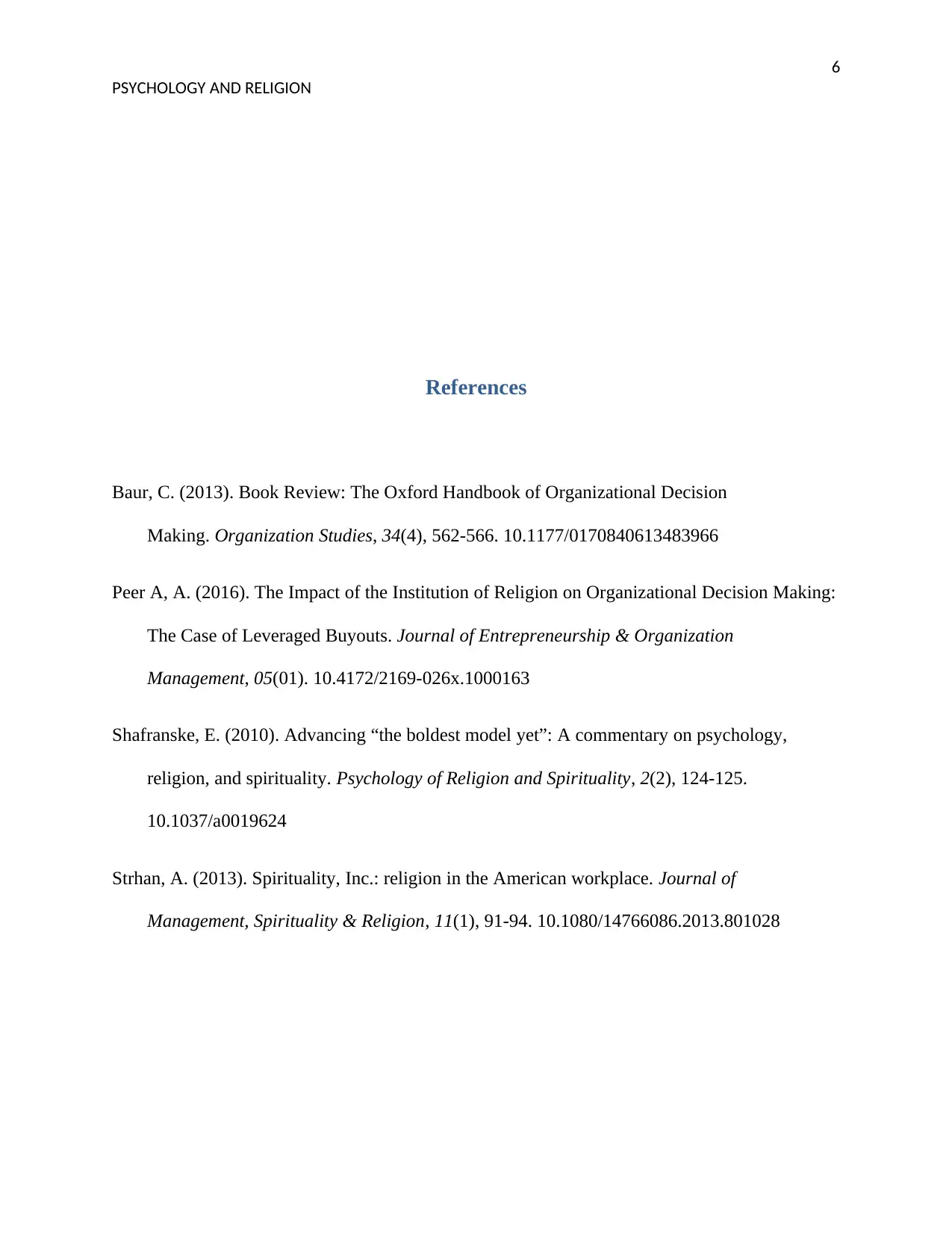





![[object Object]](/_next/static/media/star-bottom.7253800d.svg)